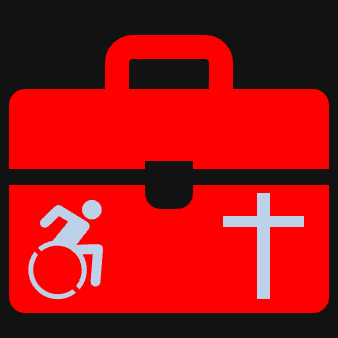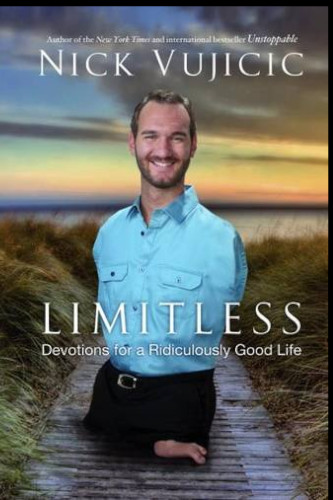The work of God is paramount. (May 23)

I’m often angry by what is said and led in relation to disability. Particularly hurtful when coming from an authoritative Christian platform. I’m no disability expert!!! Who is? Experience has taught me, I can’t possibly understand its impact on others. What is disability? Do I need a blue badge? It may be more complex…
“A person has a disability for the purposes of the Act if he or she has a physical or mental impairment and the impairment has a substantial and long-term adverse effect on his or her ability to carry out normal day-to-day activities.” (Equalities Act 2010 Section F)
I regularly hear disability theology, often a brief subclause, with harmful hurtful unbiblical implications. (Further reading: “Where is God when it Hurts” by Phil Yancey.) From physical wounds to emotional and spiritual pain.

Damage can be done by church approved statements that support the deliverer rather than the sufferer often implying it would not happen to them. “Perhaps God is teaching you to be patient. Perhaps God is teaching you something important. Perhaps you just need more faith. More prayer…”
It is true that some of the Old Testament has referred to disability as a punishment for sin. I do struggle with this, and it has blighted people in their understanding and actions. New covenant and old. Past and present.
“As he went along, he saw a man blind from birth. His disciples asked him, Rabbi, who sinned, this man or his parents, that he was born blind? Neither this man nor his parents sinned, said Jesus, but this happened so that the work of God might be displayed in his life.” (Gospel: John 9:1-3 NIVUK)
The work of God is paramount.
Moses achieved for God despite being inarticulable and sinful. What’s that got to do with disability? Many find public speaking challenging! But God made the link to disability clear. There is more to faith than eloquent engaging presentation.
“Moses said to the LORD, O Lord, I have never been eloquent, neither in the past nor since you have spoken to your servant. I am slow of speech and tongue. The LORD said to him, Who gave man his mouth? Who makes him deaf or mute? Who gives him sight or makes him blind? Is it not I, the LORD? Now go; I will help you speak and will teach you what to say.” (OT: Pentateuch: Exodus 4:10-12 NIVUK)
The work of God is paramount.
Apostle Paul achieved much for God. He had mental health problems too.
“To keep me from becoming conceited because of these surpassingly great revelations, there was given me a thorn in my flesh, a messenger of Satan, to torment me. Three times I pleaded with the Lord to take it away from me. But he said to me, My grace is sufficient for you, for my power is made perfect in weakness. Therefore I will boast all the more gladly about my weaknesses, so that Christ’s power may rest on me. That is why, for Christ’s sake, I delight in weaknesses, in insults, in hardships, in persecutions, in difficulties. For when I am weak, then I am strong.” (NT: Pauls Letters: 2 Corinthains 12:7-10)
The work of God is paramount.
My accident has provided new opportunities. Disabilities and experience might make me better at some things, for some people. For God?

Is disability a Christian liability? You don’t get many visually disabled people on stage. But if it’s all about God??? There are some awesome current heroes of faith. Learn from someone of faith born without arms and legs. (Further reading: “Life Without Limits” Nick Vujicic)
Conclusion
Scripture is full of things that seem in tension. Theodicies. Theologians may argue that I have used biased pro-disability texts in this post. My checksums of understanding and application are the greatest commandments. Again, it’s the religious leaders that needed a better perspective of the law. Teachers of the law have blind spots too.
“One of them, an expert in the law, tested him with this question: Teacher, which is the greatest commandment in the Law? Jesus replied: ‘Love the Lord your God with all your heart and with all your soul and with all your mind.‘ This is the first and greatest commandment. And the second is like it: ‘Love your neighbour as yourself.‘ All the Law and the Prophets hang on these two commandments.” (Gospel: Matthew 22: 35-40)
Sadly, society can deliberately add rather than remove unnecessary barriers. It’s called discrimination. This post might seem selfishly pro-disability, but believe me when I say, it’s as much challenge as comfort.
What can I do for God? There are no excuses.
The work of God is paramount.
This creative video of a conversation with Jesus does not come from scripture but powerfully meets my theological checksum of disability and the work of God.